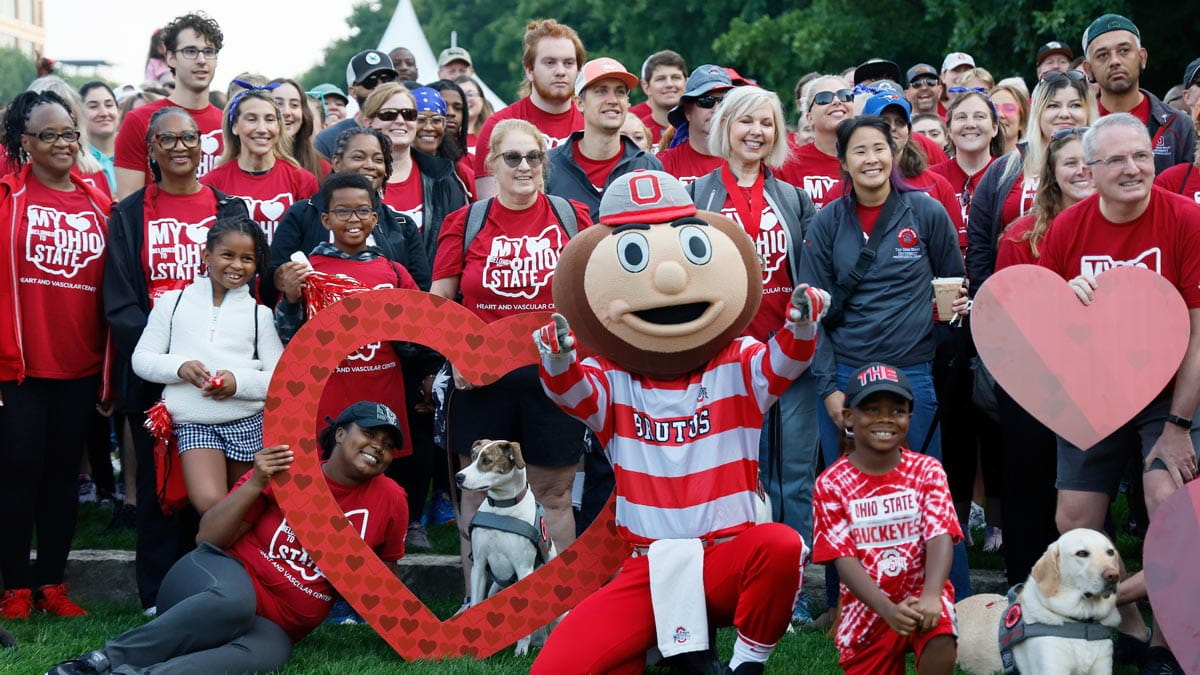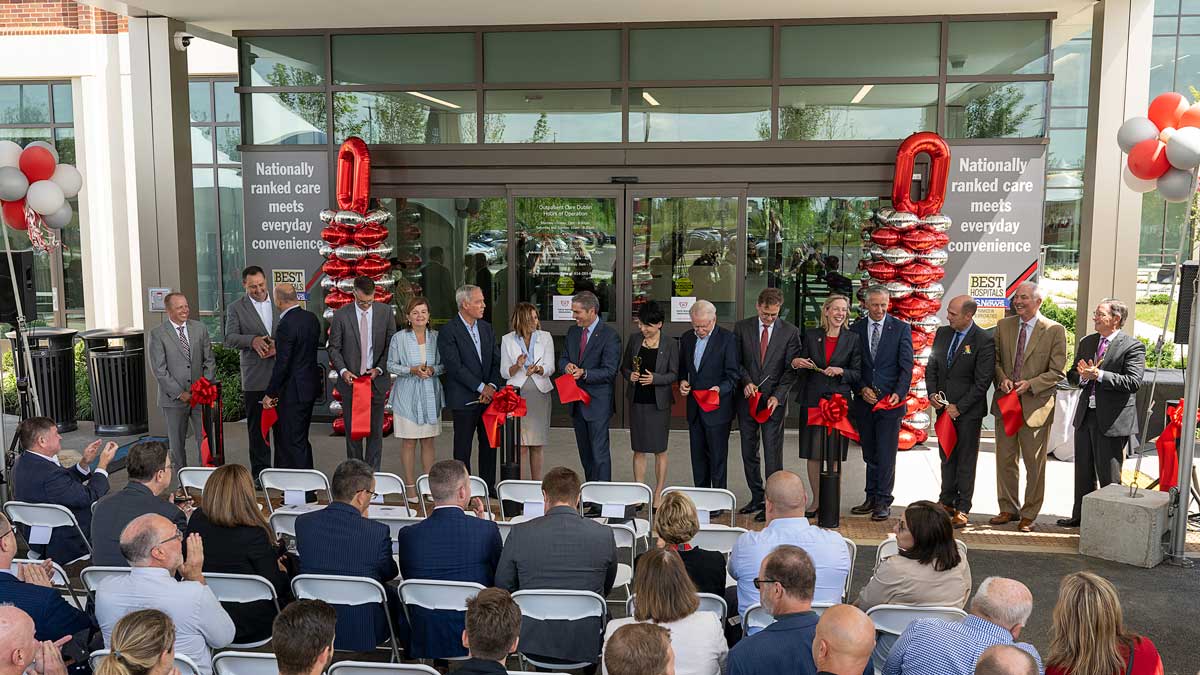How a speedy stroke response saved this mom's life

It began as a routine weekday morning. Tina was getting herself ready for work and her children ready for school. When she pulled her shirt down over her head, she heard a "ting" sound and sharp pain. "It felt like somebody smashed me in the head with a baseball bat," says Tina. She tried lying down, but something inside told her to get up and go to the emergency room.
Tina's husband, Marty, was on the road for work, so she dropped her kids off at school and went to the local emergency department in Lancaster, Ohio. "When I got there, they did a CAT scan, and immediately came in and told me I had a brain bleed." Tina had an aneurysm – a bulging, weak area in the wall of a blood vessel or artery that supplies blood to the brain. It was leaking. She was having a stroke.
"It felt like somebody smashed me in the head with a baseball bat."
Many people who have ruptured aneurysms die or face long-term brain damage, depending on the severity of the hemorrhage. Tina was rushed by ambulance to The Ohio State University Wexner Medical Center for emergency brain surgery. Ohio State's Comprehensive Stroke Center makes it one of few hospitals in Ohio with the staff and resources to treat both types of strokes, those due to clots and those resulting from ruptures, like Tina's.
Stroke is pretty frightening for patients, who often feel healthy before a brain event, shares Ohio State neurosurgeon Ciaran Powers, MD, PhD. "You're going about your life... and then suddenly, BAM, people are telling you you've had a brain hemorrhage. That a bomb has gone off in your head."
"...suddenly, BAM, people are telling you you've had a brain hemorrhage. That a bomb has gone off in your head."
News of Tina's condition reached Marty and he rushed to the hospital to meet her. She was being prepped for surgery. "I had to take all my jewelry off and hand it to my husband, including my wedding rings," she said. "It was devastating. I handed them to him and I said, 'I will get these back.'"
Tina was in surgery at Ohio State less than one hour after she had arrived at her local hospital. Dr. Powers and his team quickly worked to stop the bleeding in her brain.
Comprehensive Stroke Centers like Ohio State have protocols that speed the time between stroke and surgery. In circumstances like Tina's, Dr. Powers is contacted directly during the patient transfer, so he and his team can prepare to intervene more quickly. "If there's someone out there that has a ruptured aneurysm that I need to take care of," says Dr. Powers, "I want them in my ICU right now."
Tina's rupture was repaired and she was stabilized. Thanks to quick action by her referring hospital and the stroke team at Ohio State, her life was saved, and a lifetime of long-term disability avoided. But the surgery revealed further threats: Dr. Powers discovered five aneurysms in Tina's brain. She had to undergo a second procedure shortly afterward to repair the remaining aneurysms.
We have great tips about preventing and recognizing stroke. You should see them.
Making the most of every minute
Tina went home about two weeks later. There was still treatment to complete and many questions to ask, but Tina said she felt she had the educational and emotional support from Ohio State's team to make a strong recovery. Since that dreadful day, Tina says she tries to make most of every minute. On the weekends, you'll either find her riding motorcycles with Marty or camping and fishing with her family.
Tina has also become an advocate for stroke prevention, educating people about brain aneurysms and urging everyone to get immediate medical attention if they experience any unusual head pain.
Acting quickly when a stroke is suspected can mean less damage, and maybe even a full recovery. The highly trained stroke experts at Ohio State's Comprehensive Stroke Center are ready to respond with the most advanced treatments round-the-clock. Learn more about the risk factors and warning signs of stroke.







